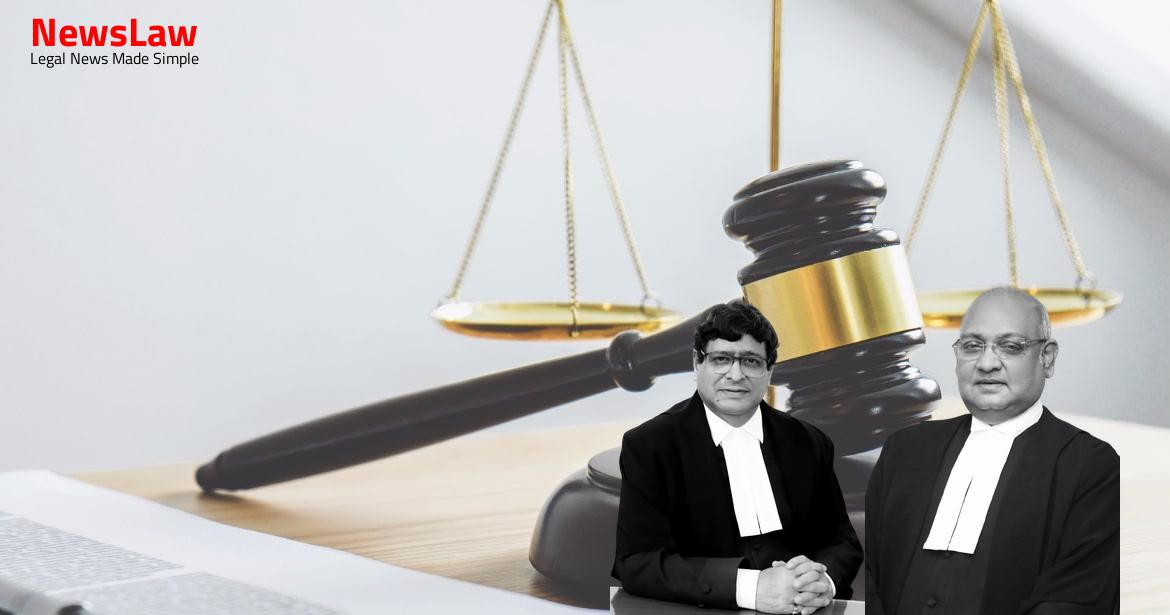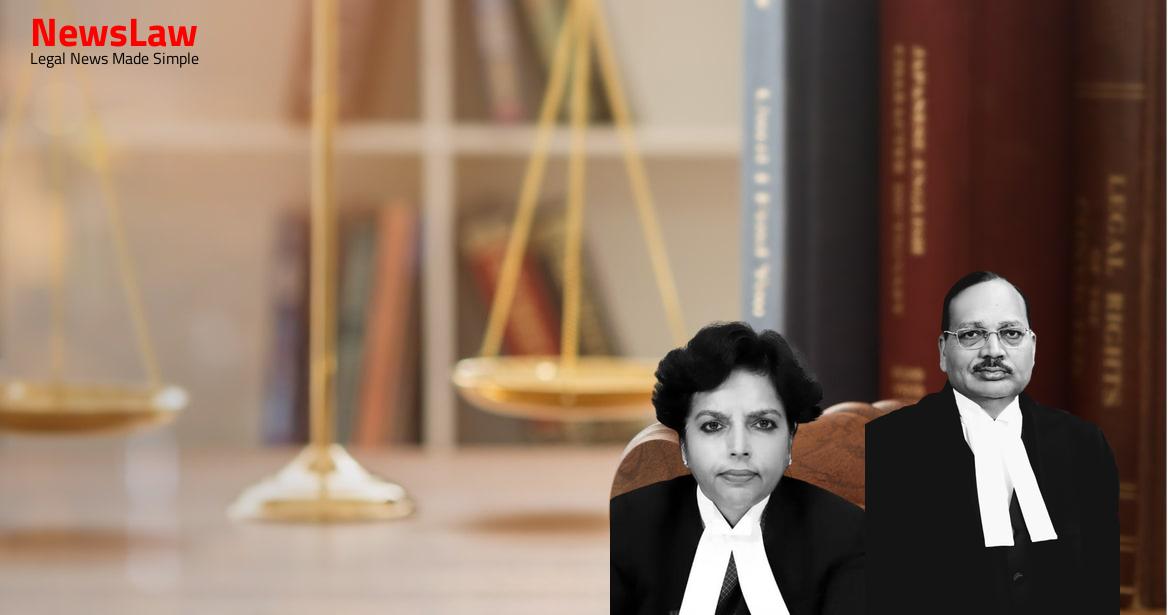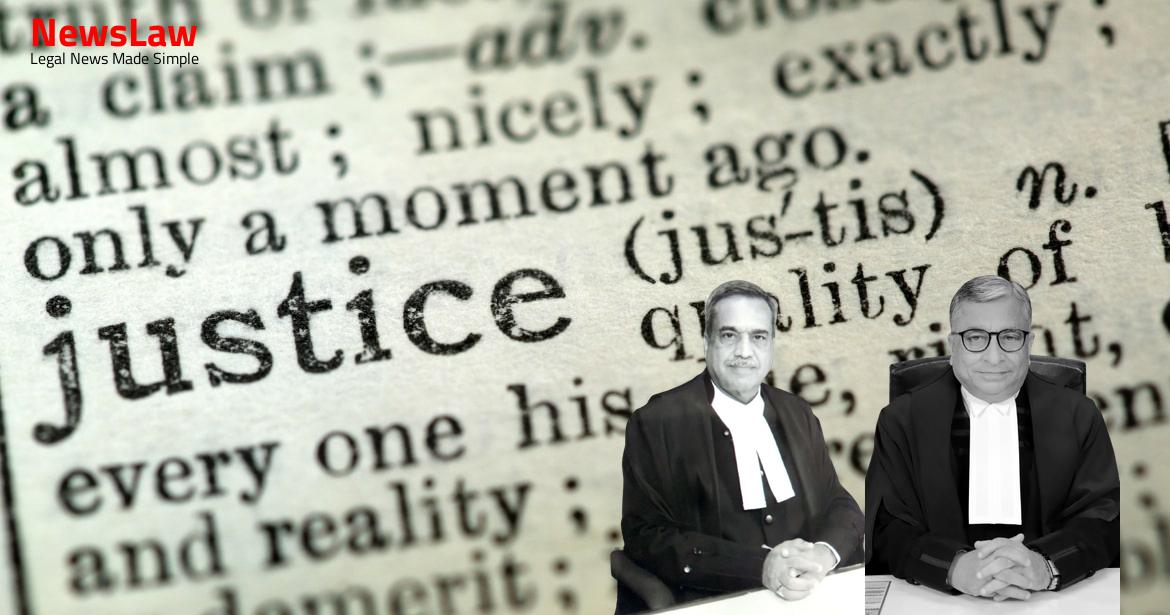The appellant had preferred the said petition against the order dated 08.09.2021, as passed by the Additional Sessions Judge, Court No 1, Muzaffarnagar in Criminal Revision No 145 of 2021, whereby the Revisional Court had declined to interfere with the order dated 23.07.2021, as passed by the Sub-Divisional Magistrate, Budhana in Case No.
It appears that during the course of inquiry on the said report, the learned Magistrate put the appellant to the condition of furnishing bond and accordingly, in terms of Section 116(3) CrPC, the appellant furnished a personal bond in the sum of Rs. On 02.07.2021, a report was made by the Revenue Inspector/Lekhpal to Magistrate while allegating that the appellant had undertaken illegal construction on 0.0187 hectares out of 0.5310 hectares of the land of public pond in khasra No 1285/2; and that the said illegal construction was stopped and the proceedings in that regard were pending in the Court of Tehsildar, Budhana. 5,00,000/- of the bond furnished by the appellant and directed as under: – “On the basis of the above analysis, it is prima facie proved that the respondent/accused Istakar son of Sarwar, resident of village Shikarpur, pargana Shikarpur, tehsil Budhana, district Muzaffarnagar, has violated/disturbed the bond order while being bound by the bond. The Revisional Court, of course, initially took note of the fact that the appellant was ordered to execute the bond so as to maintain peace during Panchayat Elections 2021 and that the maximum period of one year for the bond as permissible under Section 117 was not as such mentioned in the order. It is also clear that creating obstruction during the government and official work by the government/revenue employees and using indecent language with them, is a punishable offence under section 186 – 186 Indian Penal Code. The provisions of section – 120 of the criminal procedure code, indicate the circumstances in which the act done by the bounded person will be considered as violation of the conditions of the bond, in which commission of any offence punishable with imprisonment or attempt to do the same or to commit abetment in this regard whether the same has been committed or not. The High Court further proceeded to direct the appellant to comply with the impugned order dated 23.07.2021 within three months. In the first two paragraphs of impugned short order dated 19.07.2022, the High Court took note of background facts relating to the subject-matter and then, proceeded to state its conclusion in the following terms: – “The jurisdiction vested in High Court under Article 227 of the Constitution of India should be exercised sparingly and only in appropriate cases to keep the subordinate courts within the bounds of their authority.
1 Chapter VIII of CrPC ranges from Section 106 to Section 124.
Of these, Section 107 is for taking security generally for keeping the peace; Section 108 is for security for good behaviour from persons disseminating seditions matters; Section 109 is for security for good behaviour from suspected persons; and Section 110 is for security for good behaviour from habitual offenders. — (1) When an order under section 111 has been read or explained under section 112 to a person present in Court, or when any person appears or is brought before a Magistrate in compliance with, or in execution of, a summons or warrant, issued under section 113, the Magistrate shall proceed to inquire into the truth of the information upon which action has been taken, and to take such further evidence as may appear necessary. (3) After the commencement, and before the completion, of the inquiry under sub-section (1), the Magistrate, if he considers that immediate measures are necessary for the prevention of a breach of the peace or disturbance of the public tranquillity or the commission of any offence or for the public safety, may, for reasons to be recorded in writing, direct the person in respect of whom the order under section 111 has been made to execute a bond, with or without sureties, for keeping the peace or maintaining good behaviour until the conclusion of the inquiry, and may detain him in custody until such bond is executed or, in default of execution, until the inquiry is concluded: Provided that- (a) no person against whom proceedings are not being taken under section 108, section 109, or section 110 shall be directed to execute a bond for maintaining good behaviour; (b) the conditions of such bond, whether as to the amount thereof or as to the provision of sureties or the number thereof or the pecuniary extent of their liability, shall not be more onerous than those specified in the order under section 111.
Also Read: https://newslaw.in/case-type/civil/courts-jurisdiction-in-re-appraising-arbitrators-findings/
(6) The inquiry under this section shall be completed within a period of six months from the date of its commencement, and if such inquiry is not so completed, the proceedings under this Chapter shall, on the expiry of the said period, stand terminated unless, for special reasons to be recorded in writing, the Magistrate otherwise directs: Provided that where any person has been kept in detention pending such inquiry, the proceeding against that person, unless terminated earlier, shall stand terminated on the expiry of a period of six months of such detention. Order to give security.—If, upon such inquiry, it is proved that it is necessary for keeping the peace or maintaining good behaviour, as the case may be, that the person in respect of whom the inquiry is made should execute a bond, with or without sureties, the Magistrate shall make an order accordingly: Provided that— (a) no person shall be ordered to give security of a nature different from, or of an amount larger than, or for a period longer than, that specified in the order made under section 111; (b) the amount of every bond shall be fixed with due regard to the circumstances of the case and shall not be excessive; (c) when the person in respect of whom the inquiry is made is a minor, the bond shall be executed only by his sureties. — (1) **** **** **** (b) If any person after having executed a bond, with or without sureties for keeping the peace in pursuance of an order of a Magistrate under section 117, is proved, to the satisfaction of such Magistrate or his successor- in- office, to have committed breach of the bond, such Magistrate or successor- in- office may, after recording the grounds of such proof, order that the person be arrested and detained in prison until the expiry of the period of the bond and such order shall be without prejudice to any other punishment or forfeiture to which the said person may be liable in accordance with law.
Procedure when bond has been forfeited.—(1) Where a bond under this Code is for appearance, or for production of property, before a Court and it is proved to the satisfaction of that Court or of any Court to which the case has subsequently been transferred, that the bond has been forfeited, or where, in respect of any other bond under this Code, it is proved to the satisfaction of the Court by which the bond was taken, or of any Court to which the case has subsequently been transferred, or of the Court of any Magistrate of the first class, that the bond has been forfeited, the Court shall record the grounds of such proof, and may call upon any person bound by such bond to pay the penalty thereof or to show cause why it should not be paid.
(2) If sufficient cause is not shown and the penalty is not paid, the Court may proceed to recover the same as if such penalty were a fine imposed by it under this Code: Provided that where such penalty is not paid and cannot be recovered in the manner aforesaid, the person so bound as surety shall be liable, by order of the Court ordering the recovery of the penalty, to imprisonment in civil jail for a term which may extend to six months. In challenge to the orders aforesaid, learned counsel for the appellant has submitted that the amount sought to be recovered from the appellant, a daily-wage earner is exceptionally high and is wholly unjustified. The provision authorises the Magistrate to initiate proceedings against a person if upon information, he is satisfied that such person is either likely to commit breach of peace or disturb public tranquillity or is likely to commit any wrongful act that might probably produce the same result. The Magistrate while ordering security under Section 117 has to take into consideration the status and position of the person to decide the quantum of security/bond; and cannot alter the purpose of the provisions from preventive to punitive by imposing heavy quantum of security/bond, which a person might be unable to pay. This clearly enunciates that even when a person fails to show sufficient cause as to forfeiture of the bond amount, the Court is not bound to direct payment or recovery of the entire bond amount. For his alleged acts, he could have been proceeded under the applicable law for any encroachment or illegal construction and he could have also been prosecuted, as indicated by the Revisional Court, under Section 186 IPC but, in all such processes, the appellant was to be extended reasonable opportunity of defending himself.
Therefore, looking to the totality of circumstances; the nature of alleged acts and the amount of the bond; the fact that the purpose for which bond was executed had already been achieved; that there was no imminent threat to breach of public peace from appellant; and the fact that the appellant is a daily-wage earner and would not have proper means to arrange the bond amount, we are of the view that, forfeiture of an amount of Rs. In view of the above, to meet the ends of justice and with the discretion of remitting the penalty vested in Court, the present appeal is allowed to the extent that the amount to be deposited by the appellant is reduced to the nominal amount of Rs. JUSTICE DINESH MAHESHWARI HON’BLE MR. Vishwa Pal Singh, AOR UPON hearing the counsel the Court made the following O R D E R Leave granted.
REGISTRAR-cum-PS COURT MASTER
Also Read: https://newslaw.in/case-type/civil/contrary-directions-in-issuance-of-letter-of-intent/
[Signed reportable judgment is placed on the file] 13
Case Title: ISTKAR Vs. THE STATE OF UTTAR PRADESH (2022 INSC 1324)
Case Number: Crl.A. No.-002034-002034 / 2022



